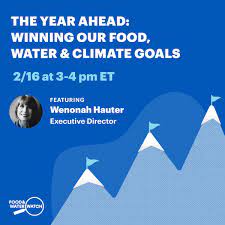>>> From a Letter by Wenonah Hauter, Food & Water Watch, February 2, 2022
The U.S. is the largest global source of plastic waste. All this plastic waste is polluting our rivers, lakes, oceans, beaches, parks and neighborhoods. It’s in the air, dirt and dust. It’s in our food and even in Arctic sea ice. Simply put: It’s EVERYWHERE.
Why? Because fracking is fueling the dangerous plastics buildout. It’s a vicious cycle where more fracking drives more fracked gas infrastructure — like pipelines, power plants and more plastics manufacturing — and that in turn encourages more fracking.
More fracking also means more deadly greenhouse gases that are causing climate change. It’s why Food & Water Watch is taking on Big Oil & Gas directly. We’re fighting for a livable future — one free of dangerous and dirty fracking, pipelines and power plants. You can help.
U.S. fracking has produced an oversupply of fracked gas and ethane, a fracking byproduct used to manufacture plastics, in the past few years. This has created a gas glut that fuels the expansion of petrochemical and plastics plants.
This renewed push represents a once-in-a-lifetime opportunity for plastics manufacturing and provides the fracking industry with a polluting partner to absorb the increasing quantities of fracked gas. In other words, the plastics and fracking industries rely on one another to prop up their polluting business models.
Let’s Take on Big Oil & Gas Together, Now Before These Problems Become Worse
All these petrochemical and plastics plants emit massive amounts of air pollution and greenhouse gases, including the methane that accelerates climate change. Communities of color and low-income communities are disproportionately impacted by the dangerous greenhouse gas emissions and toxic chemicals released during the production or incineration of plastics since these plants are most often built in their communities.
And all that plastic doesn’t decompose. Instead, plastic breaks down into microplastic molecules that end up in everything, including our food and water — and in us! On average, people are consuming about five grams of this residual plastic weekly — roughly the same amount of plastic as found in one credit card!
That’s why we’re doubling down and working even harder to end the fracking-to-plastics pipeline by calling for a ban on fracking and a halt to new power plants, pipelines, and oil and gas export facilities. Fracking and plastics are killing the planet, its wildlife and us — it’s time to put an end to this madness. Will you join our fight and help take on Big Oil & Gas?
Donate to Food & Water Watch to Help Take on Big Oil & Gas and Stop Plastics Pollution. Most of the plastic produced ends up in our rivers, lakes and oceans, and kills over 100,000 marine mammals and sea turtles each year. Let’s go onward together, so count me in because our responses to the current crisis are essential.
>>> Wenonah Hauter, Founder and Executive Director, Food & Water Watch
#######+++++++#######+++++++#######
See also: Nine (9) Ways Fracking Is The Worst — Climate Change Is Top Of The List — Food & Water Watch, October 15, 2021

